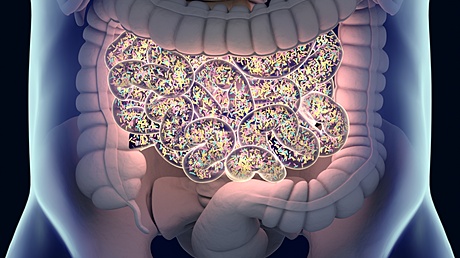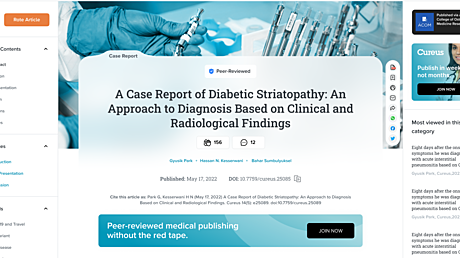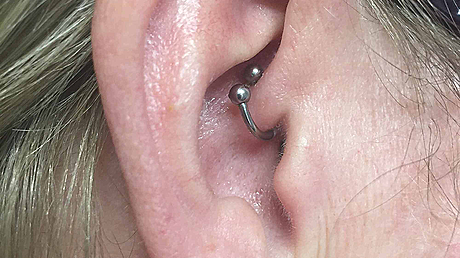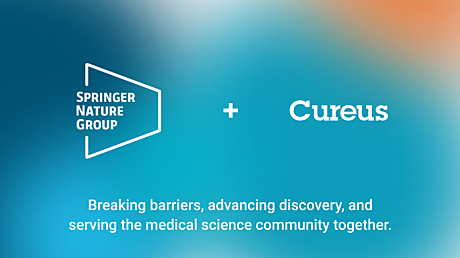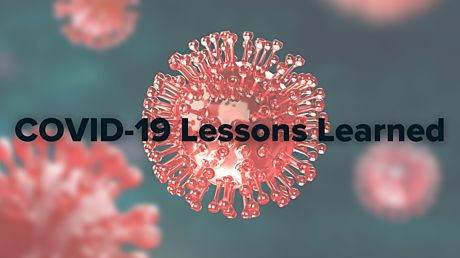Newsroom
Psychoactive Drug Treatment Submissions
We’d like to thank all of the authors who participated in our “Therapeutic Psychoactive Drug Treatments” call for submissions. Once thought to be a dangerous and taboo part of counterculture, psychoactive drugs are gaining mainstream acceptance in the medical community. Several states and cities in the United States and countries around the world are beginning to legalize or decriminalize psilocybin and other psychoactive drugs for therapeutic or medicinal purposes. (1) Click below to view the articles published on this topic, and stay on the lookout for new calls for article submissions on major clinical topics.
May 19, 2023
Score and Comment on Articles from our ChatGPT Contest
We recently hosted a call for submissions contest for case reports, but our authors didn’t submit alone. They had help from ChatGPT, the cutting-edge language model trained to assist with natural language processing. With ChatGPT's assistance, authors have submitted detailed case reports. Now, we're curious - do you think there's a place for ChatGPT in medical publishing? Does this technology have the potential to revolutionize the way we approach medical research and publishing or could this lead us down a dangerous path? We invite you to read the published articles (more are on the way) and see for yourself. We would love to hear your thoughts on this exciting topic, so please read, rate (using our SIQ scoring system), and comment on the case reports. We appreciate your feedback and look forward to discussing the future of medical publishing with you.
May 19, 2023
The Wall of Shame and Recentering the Focus on the Academic Record
Let’s talk about the Wall of Shame. As a peer-reviewed medical journal, we have a fundamental responsibility to ensure that potentially dangerous medical misinformation is not published. With traditional research integrity methods sometimes falling short, we decided to conduct an experiment by highlighting authors who have committed egregious ethical violations as well as the institutions that enabled them. While we will never abandon this responsibility, we have decided to remove the Wall of Shame tomorrow, May 12th, 2023. Why, you may be asking? Especially when the Cureus community of authors, readers and reviewers were overwhelmingly supportive? We recognize that this is an ongoing problem, but we have determined that there are better ways of addressing academic fraud and dishonesty than by publicly sharing lists of authors. We wish to recenter the focus on correcting the academic record, as that is the ultimate goal of any correction or retraction. We will continue to vigorously investigate allegations of academic fraud and dishonesty, and we will do so objectively, without levying judgment on authors deemed to have acted unethically.
May 11, 2023
Disparities in Ownership and Use of Digital Health Technology Between Rural and Urban Adults
An article published in Cureus was recently picked up by mHEALTH INTELLIGENCE. "Published in Cureus, new research indicated that although rural residents were just as likely as their urban counterparts to own and utilize digital health tools, they used these resources for communication with providers less, prompting the need for investigation of geographical digital access disparities. Specifically, the researchers indicated that more research into differences in broadband access, plus development of “low connectivity” apps, will be key to closing technology access disparities. Despite the constant growth of digital health tools, there is limited research surrounding differences in adoption between rural and urban residents. In this study, researchers used a National Inpatient Survey to examine statistics on the ownership and use of digital health tools among patients in various geographies..." Read the full article here.
May 11, 2023
Video Abstract Submissions
Submit a Video Abstract As technology becomes more integrated into our lives, our attention spans have shortened, and we've grown accustomed to receiving information in condensed formats. This shift in information consumption extends to scientific research, necessitating a change in how content is presented. This guide offers a comprehensive walkthrough for creating a video abstract, from its inception to production, and finally, submission. It aims to help you produce your own video abstracts, regardless of your available equipment or budget. You will be in charge of the project from start to finish. Be aware that our team will evaluate all video abstracts for appropriateness, and publication is not guaranteed. In some instances, you may be asked to make minor adjustments to your video. Remember that you may only submit a video abstract after your paper has been accepted. Do not send a video abstract when initially submitting your manuscript. If you have any questions during the process, please reach out to [email protected], and our Digital Marketing Manager will contact you. What is a Video Abstract? A video abstract is a supplementary feature for research articles designed to capture viewers' interest in the scientific paper. The purpose of a video abstract is to showcase the key findings of your research or case report. Ideally it should not only present the main results and conclusions but also offer something unique compared to the written paper. A successful video abstract engages viewers by narrating a story, often starting with a specific discovery, question, or theme around which the story develops. Creating a compelling video about a serious subject doesn't require a large budget or cutting-edge technology. Modern technology allows for the production of high-quality videos at a relatively low cost, as detailed in these guidelines. The focus should be on capturing your audience's attention and inspiring them to read your paper. Top Tips for an Effective Video Abstract Maintain a relaxed and friendly tone in your video. When writing a script, use conversational language as if explaining your research to a non-expert. Video abstracts target a scientific audience but should be accessible to a broader audience, including journalists and students. While writing your paper, consider potential footage and other media for your video abstract. You can often find relevant stock videos on websites like Adobe that can be used to help make your video more engaging. To ensure your message is effectively communicated and keeps the viewer's attention, aim for a concise video, no longer than 4 minutes. The full research details can be found in the written article, so the video should not detract from the paper itself. Budget Solutions for Video Abstracts High-End Budget (Up to 4 minutes in length) Creating a comprehensive story with top-quality elements If you have access to advanced equipment, whether personally, through your university's media department, or by outsourcing production, your video abstract can incorporate (some of) the following features: Author(s) appearing on camera Engaging footage and/or graphics 3D animations Re-enactments to demonstrate medical procedures or consultations Contextual footage (laboratories, key aspects of the study) General footage relevant to the medical or scientific context Medium to Low Budget (Up to 4 minutes in length) Innovative storytelling with limited video elements A video abstract in this budget range may feature the author(s) providing a voiceover alongside professional animations (avoid using PowerPoint presentations or low-quality images/graphics). Potential components include: Author(s) on camera Engaging footage Graphics (with simple animations rather than static images) Contextual footage (laboratories, key aspects of the study) General footage relevant to the medical or scientific context You can email your video to [email protected]. Please include any social media handles for you, your co-authors, and your institution so we can tag everyone properly. Don't forget to click below to subscribe to our YouTube Channel!
Apr 26, 2023
Slowing MS Progression by Targeting The Gut Microbiome
An article published in Cureus was recently mentioned by Healthdigest.com "Multiple sclerosis (MS) is an autoimmune disease that attacks the central nervous system, according to the National Multiple Sclerosis Society. People with MS will suffer symptoms such as numbness, mood changes, memory problems, or paralysis. MS affects up to 1 million people in the United States. Because there is no cure for MS, researchers are looking for new ways to treat the progression of the disease. According to a 2022 article in Cureus, using interferons to treat MS can aggravate MS, cause depression, or affect a person's walking. Other treatments have side effects, ranging from urinary tract infections to cancer. Eating a diet rich in fatty acids, polyphenols, and antioxidants such as vitamin D, curcumin, and vitamin A help reduce oxidative stress to ease MS. However, researchers are turning to the gastrointestinal tract because the central nervous system and GI tract are linked..." Read the full article here.
Mar 13, 2023
Introducing a Better Way to Read Cureus Articles
Our brand new article pages are now live! Cureus is delighted to share our new article page design with you! Our new layout frames your articles in a fresh and pleasing way, and includes a number of exciting features. We’ve highlighted the improvements below. Article banner image sourced from your article’s figures No figures in your article? No problem! We will instead display an attractive image related to your article’s category. Highlight and quote text in comments or a tweet You can now highlight a specific phrase, sentence or paragraph via automatic quote in a tweet or your comment at the bottom of the article, providing helpful context in your discussion with other readers and the authors. New floating toolbar featuring citation tool The new toolbar enables you to save, share, and cite articles with the click of a button. Options include liking the article, downloading the citation or entire article as a PDF, and sharing it via email, Twitter, Facebook, Reddit, and many other social platforms. Let's make an impact! Citing a Cureus article has never been easier. Download the citation using the toolbar and add it to your preferred citation manager. Article endorsement Is there a particular article you found interesting or enjoyable to read? Maybe it added something new to the literature? Endorse the article by clicking the "Cureus claps" button under the title. Updated SIQ look and tiers Articles will receive a ribbon around their SIQ scores if their score exceeds 5. Silver ribbons are awarded to articles with SIQs ranging from 5-7.9 and gold ribbons awarded to articles with scores of 8-10. Article navigation Jump to the Comments section by clicking the comment button under the article title. Automatically scroll back to the top of the article by clicking the arrow in the bottom right corner. Unfold the Table of Contents on the left side bar to quickly scroll to a specific section. Category classification clarity and search Article categories are now expanded and displayed prominently on the left sidebar. Click an article category to explore related articles. For a more focused search, expand the Keyword section below and click to search by keyword. Recommended reading The insatiable scholars among us can find popular articles on the right side bar. Cureus will recommend Call for Submissions articles and other collections in our new Cureus Promotions space in the top right corner. Finally, quench your curiosity by searching for related topics and finding relevant "Further Reading" at the bottom of the article
Jan 24, 2023
Do Daith Piercings Actually Have Wellness Benefits?
A Cureus article from 2020 was recently mentioned in a Glam article that explores whether or not daith piercings have any real wellness benefits. "One Medical internal medicine physician Hemalee Patel, DO, told PopSugar, 'While it is an acupressure point and the idea is that keeping pressure on a point like that can stimulate that area and reduce pain and anxiety, there is no medical evidence to support it.' A 2020 journal article published in Cureus on the subject of daith piercings for migraine treatment reveals that the daith piercing may lead to a placebo effect, which may explain the anecdotal evidence in support of the supposed health benefits..." Read the Glam article.
Dec 21, 2022
Cureus is now part of Springer Nature!
We are delighted to share with you that Cureus is now part of Springer Nature! Springer Nature is a German-British academic publishing company considered to be a leader in global research, educational, and professional publishing. As of December, 2021, Springer Nature had published 16% of all Open Access primary research, which is 29% more than any other publisher. Cureus will continue to eliminate barriers to the generation and dissemination of medical knowledge, only now as part of Springer Nature. Our mission and editorial policies will remain the same - providing access for all authors to publish credible science. Springer Nature’s backing and trust will enable Cureus and our community of readers, authors and peer reviewers to grow even more quickly. We are thrilled to join with Springer Nature in paving the way towards an open science future. "We are super excited by our new relationship with Springer Nature. With their support, Cureus can accelerate the growth of our network of users, thereby enabling us to more readily democratize medical science. Our new relationship will further strengthen our efforts to be the fastest, lowest cost, oftentimes free, Open Access medical journal in the world, and also one with the broadest reach. What once seemed elusive due to our outsider status is now within reach: indexing in MEDLINE, receiving an Impact Factor - everything is now on the table!" - John R. Adler, MD, Cureus Founder, President and Co-Editor-in-Chief Joining Springer Nature is a true testament to the impact made by Cureus and our community of authors, peer reviewers and readers! We pledge to keep pushing the boundaries of the medical publishing establishment in pursuit of fast, efficient and affordable publication while providing an experience uniquely tailored to each reader and peer reviewer. Thank you for your support!
Dec 07, 2022
Excessive Pornography Consumption: Addiction or Habit?
Call for Submissions Excessive Pornography Consumption: Addictive Disorder or Habit? The internet is awash in pornography. Sexual content has been just a few keyboard clicks away throughout much of our modern existence. A well-known pornographic website revealed in 2019 that it was visited daily by 115 million people and 42 billion people each year.1 What significance does this hold for human behavior and sexual health? There is a scarcity of research about “porn addiction.” Is such behavior merely a variation of human sexuality or is it a pathological compulsive addiction with far ranging effects on psychological well being?2 For years mental health professionals and researchers have debated what constitutes hypersexual disorders and rightful inclusion in the DSM.3,4 In light of the above, Cureus is hereby sending out a call for scientific articles that broadly relate to the field of pornography and its potential behavioral manifestations. For the opportunity to be featured on a dedicated “pornography research” page and email announcement, we invite authors to submit original articles, case reports, review articles, and editorials that explore the subject of “excessive” pornography consumption and whether or not it is an addictive, hypersexual, compulsive-impulsive, or other disorder. Let’s see if science can shed any light on the present controversy! *Please add “Pornography 2022” as a keyword in your submission to qualify.* Example topics include: Neural and behavioral correlates of sexual stimuli anticipation point to addiction-like mechanisms in compulsive sexual behavior disorder. The role of impaired control in screening problematic pornography use: Evidence from cross-sectional and longitudinal studies in a large help-seeking male sample. Online Sex Addiction: A Qualitative Analysis of Symptoms in Treatment-Seeking Men. Electrophysiological Evidence of Enhanced Processing of Novel Pornographic Images in Individuals With Tendencies Toward Problematic Internet Pornography Use. Pornography, a neglected prevailing addiction
Dec 01, 2022
The Clinical & Public Health Implications of Abortion Bans & Restrictions
We would like to thank all of the authors who participated in this call for submissions. The Supreme Court’s decision to overturn Roe v. Wade has major national public health repercussions. While abortion has long been a hot topic in the political arena, we believe it should be viewed through a clinical and public health lens, not via one’s political ideology. We hope this initiative will help raise awareness and prompt discussion about abortion, reproductive rights and maternal mortality. While the United Stated Supreme Court decision to overturn Roe v. Wade prompted this call for articles, we understand that abortion access and reproductive rights are a global topic affecting people all over the world. Read the articles below: Abortion Is a Right: Perspectives of Family Medicine Physician Residents The Relationship Between Access to Abortion and Mental Health in Women of Childbearing Age: Analyses of Data From the Global Burden of Disease Studies Isotretinoin, Vitamin A Supplements, and Unintended Pregnancies in Post Roe v. Wade America The Interest in Permanent Contraception Peaked Following the Leaked Supreme Court Majority Opinion of Roe vs. Wade: A Cross-Sectional Google Trends Analysis The Medical and Financial Burden of Illegal Abortion Effects and Proposed Countermeasures of Abortion Bans and Restrictions on People With Uteruses and Society Looking for a Silver Lining to the Dark Cloud: A Google Trends Analysis of Contraceptive Interest in the United States Post Roe vs. Wade Verdict Misadventure of an Unsafe Abortion Sexual Debut, Sexual Education, Abortion, Awareness and Prevalence of Contraceptive Among Female Undergraduates Students in Public and Private Universities in Ekiti State, Nigeria
Nov 17, 2022
Read the Articles: COVID-19 Retro Call for Submissions
We’d like to thank all of the authors who participated in our retrospective on Covid-19. The objective of this call for submissions was to focus on what the world of medicine and public health got right in its approach to this pandemic, but even more so, where did we all go wrong and why? The hope is that a scholarly post-mortem now can inform better decision making today, while also perhaps improving hospital care and public health measures in future pandemics. Click below to read the published articles on this topic, and stay on the lookout for new calls for article submissions on major clinical topics.
Oct 18, 2022





